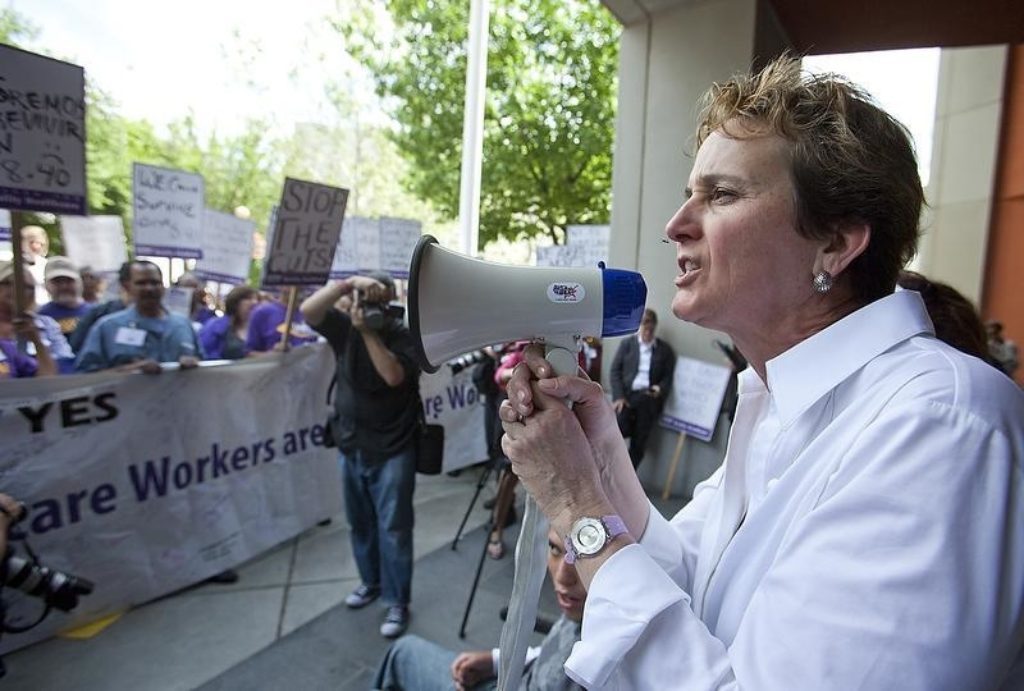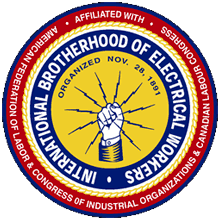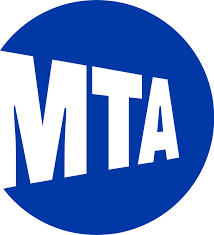
New York, NY – Frontline health care workers across the country are facing an alarming shortage of personal protective equipment [PPE] and their respective unions are calling on the federal government to lead a coordinated effort nationwide to manufacture and distribute facial masks, gloves and gowns.
During a March 23, media call, four healthcare workers from across the nation discussed their harrowing day-to-day experiences trying to care for patients in different kinds of health care environments where hospitals and nursing homes are rationing PPE and home caregivers are having to spend their own money to buy it.
“Our natural response is that we want to wear the masks, that’s what our training tells us, but we know there is simply not enough to go around,” said Gabriel Montoya, an ER assistant in California and a member of SEIU-UHW.
The California medico pointed out that the federal government once repurposed factories for war production during World War II — and can do the same today.
“The federal government has the authority to take control of factories now. We can repurpose them to make masks, gowns and gloves. We’ve done it in the past to create weapons of war, why not do it now for tools of caring,” he added.
Similarly, Melanie Arciaga, a registered nurse in Seattle, has seen a lot of rationing at her hospital in downtown Seattle.
“Masks are kept under lock and key and there is even a limited allowance per day of hand sanitizer. This is unacceptable. As the crisis continues, we need access to more PPE so that everyone is protected,” said Arciaga.
Meanwhile, DeSharna Johnson, a home care worker in California, who faces the challenge of caring for her 64-year old mother and a 91-year old neighbor with Alzheimer’s, said she doesn’t earn enough money at $13.80 per hour to afford to replenish PPE regularly.
“Whether we work in hospitals, nursing homes or in the homes of those who are most at risk to Covid19 exposure, it’s critical that our government take all the steps necessary right now to protect all healthcare workers and protect all of our patients,” she said.
And Yazmin Soto, a certified nursing assistant in Perth Amboy, N.J., said she arrived at work last Friday, and was given only one disposable face mask to use.
“I was told to wear it all day long, and then put it in a bag to bring home with me so that I can wear it again the next day. These masks are not meant to be reused, especially not for multiple days. I can’t afford to get sick, I’m a single parent and I don’t make much money,” said Soto.
After hearing their stories, Mary Kay Henry, president of the Service Employees International Union [SEIU], emphasized that while health care workers are doing all they can under great stress to treat patients with the virus and answering the call to protect as many as people as possible — they can’t do it alone.
That’s why she submitted a letter to the United States Secretary of Health and Human Services Alex Azar outlining some of the steps the federal government should be taking to contain and stop the spread of Covid 19. (All the demands the union has made is available for viewing here.)
For starters, Henry wants the federal government to distribute masks and equipment held in the strategic national stockpile immediately in a transparent and equitable way.
“Our federal government needs to do what it can to speed up the production of new supplies and get them quickly to healthcare workers. There’s no time for half steps and volunteerism — the worst-case scenario is here,” Henry said.
Frontline caregivers and their families must come first in any aid package for hospitals, according to the union.
Indeed, an aid package has thus far not passed the Senate because Senate Democrats have said that the $1.6 trillion package written by the GOP provides too much help to businesses over the public.
“The reality is that a huge number of healthcare workers don’t have affordable healthcare at this moment. Nobody who is putting their health at risk for their community should have to worry about getting wiped out financially because they get sick themselves,” Henry said.
According to Montoya, there was a time when healthcare workers could make their own autonomous decision of when to use a facial mask. But now that there’s a shortage, health care workers are having to put their own healthcare at risk.
He noted that every morning at the beginning of his shift, he and his co-workers huddle together to get the latest news and safety guidelines from the hospital director and the Center for Disease Control.
It’s at these meetings where Montoya said he sees the anxiety and fear of his co-workers because they don’t know how to protect themselves on the hospital floor.
These days, a common experience for Montoya and his co-workers involves stricken patients arriving in the emergency department so ill they are unable to answer questions from healthcare workers.
Before the onset of Covid-19, Montoya could opt to wear a mask as soon as the patient was admitted, but with the shortage he and his co-workers first have to confirm that the patient is displaying Covid-19 symptoms.
“The problem is that we’ve gone in and out of that room for two or three hours without a mask trying to determine if the patient has the virus,” he said. “Under normal circumstances, we would place a mask on to be safe, but that is not happening now.”
Henry said Montoya’s story underscores the union’s call for the federal government to intervene to stop the virus.
“That’s an alarming point of information…..having to justify the use of PPE because of the shortage. This is happening at hospitals all across the country, at least at the hospitals represented on this call today,” she said.



